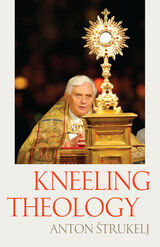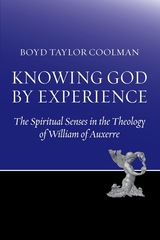5 start with K start with K

The human rights regime is one of modernity's great civilizing triumphs. From the formal promulgation of the Universal Declaration of Human Rights in 1948 to the subsequent embrace of this declaration by the newly independent states of Africa, human rights have emerged as the primary discourse of global politics and as an increasingly prominent category in the international and domestic legal system. But throughout their history, human rights have endured sustained attempts at disenfranchisement.
In this provocative study, Linda Hogan defends human rights language while simultaneously reenvisioning its future. Avoiding problematic claims about shared universal values, Hogan draws on the constructivist strand of political philosophy to argue for a three-pronged conception of human rights: as requirements for human flourishing, as necessary standards of human community, and as the basis for emancipatory politics. In the process, she shows that it is theoretically possible and politically necessary for theologians to keep faith with human rights. Indeed, the Christian tradition—the wellspring of many of the ethical commitments considered central to human rights—must embrace its vital role in the project.

What happened to paradise after Adam and Eve were expelled? The question may sound like a theological quibble, or even a joke, but in The Kingdom and the Garden, Giorgio Agamben uses it as a starting point for an investigation of human nature and the prospects for political transformation. In a tour-de-force reinterpretation of the Christian tradition, Agamben shows that the Garden of Eden has always served as a symbol of humanity’s true nature. Where earlier theologians viewed the expulsion as temporary, Augustine’s doctrine of original sin makes it permanent, reimagining humanity as the paradoxical creature that has been completely alienated from its own nature. From this perspective, there can be no return to paradise, only the hope for the messianic kingdom. Yet there have always been thinkers who rebelled against this idea, and Agamben highlights two major examples. The first is the early medieval philosopher John Scotus Eriugena, who argued for a radical unity of humanity with all living things. The second is Dante, whose vision of the earthly paradise points towards the possibility of genuine human happiness in this world. In place of the messianic kingdom, which has provided the model for modern revolutionary movements, Agamben contends that we should place our hopes for political change in a return to our origins, by reclaiming the earthly paradise.

The failure of current immigration policies in the United States has resulted in dire consequences: a significant increase in border deaths, a proliferation of smuggling networks, prolonged family separation, inhumane raids, a patchwork of local ordinances criminalizing activities of immigrants and those who harbor them, and the creation of an underclass—none of which are appropriate or just outcomes for those holding Christian commitments.
Kinship Across Borders analyzes contemporary US immigration in the context of fundamental Christian beliefs about the human person, sin, family life, and global solidarity. Kristin Heyer expertly demonstrates how current US immigration policies reflect harmful neoliberal economic priorities, and why immigration cannot be reduced to security or legal issues alone. Rather, she explains that immigration involves a broad array of economic issues, trade policies, concerns of cultural tolerance and criminal justice, and, at root, an understanding of the human person.
In Kinship Across Borders, Heyer has developed a Christian immigration ethic—grounded in scriptural, anthropological, and social teachings and rooted in the experiences of undocumented migrants—that calls society to promote concrete practices and policies reflecting justice and solidarity.


READERS
Browse our collection.
PUBLISHERS
See BiblioVault's publisher services.
STUDENT SERVICES
Files for college accessibility offices.
UChicago Accessibility Resources
home | accessibility | search | about | contact us
BiblioVault ® 2001 - 2024
The University of Chicago Press









